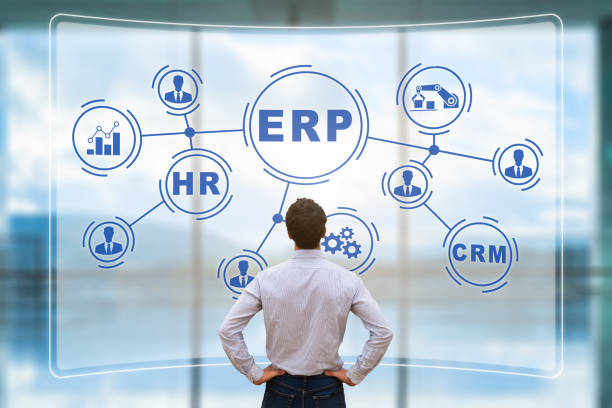
Navigating ERP Selection: An Expert Roadmap for Your Business
This roadmap offers a clear and expert-guided approach to help businesses make the optimal choice when selecting an Enterprise Resource Planning (ERP) system.
• Understanding ERP Systems
ERP systems combine various business processes, including accounting, inventory management, and human resources, to streamline operations, improve data accuracy, and boost productivity. However, understanding ERP functionalities is crucial for selecting the right system. Different ERP systems have different features, complexities, and costs. Familiarizing oneself with different modules helps make informed decisions during the selection process.
• Identifying Business Needs
To choose an ERP, conduct an internal audit to identify inefficiencies and identify areas for improvement. Engage stakeholders to consider diverse perspectives. Create a list of essential and desirable features to avoid unnecessary costs. Prioritize business goals and objectives to guide selection criteria, ensuring you choose an ERP that meets your needs and avoids unsuitable options.
• Budget Considerations
Budget is crucial in ERP selection, considering both upfront costs and long-term expenses like maintenance, updates, and training. An expensive ERP may not be the best fit, so create a detailed budget that includes software costs, implementation, hardware upgrades, and other ancillary expenses. Weigh the benefits against costs to ensure wise investment, as poor planning can lead to cost overruns.
• Vendor Evaluation
Choosing the right vendor is as crucial as selecting the right ERP. Evaluate vendors based on their experience, reputation, and support services. Request case studies or references from similar industry clients to understand their reliability and the efficacy of their solution. Compare implementation strategies and timelines offered by different vendors. Assess their customer support and post-implementation services, as these are critical for long-term success. An excellent vendor should be willing to customize solutions to meet your specific needs and provide the necessary training and support to ensure smooth implementation. A meticulous evaluation of potential vendors mitigates future risks and assures sustained support.
• Assessing Scalability
Your business will grow, and the ERP you choose should be capable of growing with it. Assess the scalability of ERP systems to ensure they can handle an increasing workload and integrate additional functionalities as needed. Look for modular ERPs that allow adding new features without overhauling the entire system. Cloud-based ERPs offer excellent scalability as they can be adjusted according to your requirements without significant infrastructure changes. Understanding how an ERP can scale with your business helps avoid future bottlenecks and ensures that your investment remains viable in the long run. The goal is to select an ERP that supports your growth aspirations seamlessly.
• Implementation Team
The success of an ERP implementation largely depends on the team managing it. Form a cross-functional team that includes IT professionals, project managers, and representatives from different departments. Choose team members who understand the business processes and have a problem-solving attitude. This team will be responsible for overseeing the implementation, liaising with the vendor, and ensuring that the system meets the set objectives. Clear roles and responsibilities, along with a well-defined implementation timeline, are vital. Regular meetings and updates help in tracking progress and addressing issues swiftly. A competent implementation team is indispensable for a smooth transition and successful deployment.
• Training and Support
Even the best ERP systems can fail if users are not adequately trained. Comprehensive training programs must be designed to acquaint users with the new system. Training should be role-specific, ensuring that each user understands how the ERP impacts their tasks. Utilize a mix of training methods, such as hands-on sessions, workshops, and online tutorials, to cater to different learning styles. Post-implementation support is equally crucial. Users should have access to help desks or support portals to address any issues they encounter. Continuous training sessions should be scheduled to keep everyone updated with system upgrades and new functionalities. Adequate training and support foster user acceptance and smooth operations.
• Evaluation and Feedback
Post-implementation, it’s essential to evaluate the system’s performance and seek feedback from users. Conduct regular assessments to ensure that the ERP is delivering the expected benefits and contributing to your business goals. Utilize metrics and key performance indicators (KPIs) related to productivity, efficiency, and cost savings to measure success. Solicit feedback from different departments to understand user experiences and identify any persistent challenges. This feedback is crucial for making necessary adjustments and improvements. Evaluating and addressing issues continually refines the ERP system’s effectiveness and ensures it remains a valuable asset to your business. Regular evaluations provide insights that help in leveraging the ERP system to its fullest potential.



